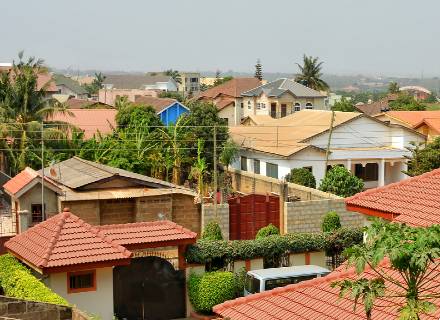Rapid economic growth in Nigeria has resulted in equally rapid growth in demand for real estate. However, the increasing prices of residential properties in Nigeria is posing a significant challenge to the sector. While increasing prices is a worry for the real estate sector, the challenges are not just limited to price. Increasing rent, under regulation and increasing price of raw materials are all adding to the woes. Prices are rising in areas such as Rivers, Lagos, and Abuja which are important commercial hubs.
Another factor plaguing the sector is the increasing rural-to-urban migration. The large influx of rural citizens to urban areas seeking better economic opportunities is also impacting the sector. Nigeria is one of the top emerging economies in the world and the biggest economy in Africa. Nigerian cities are growing rapidly and as a result, they are getting over populated, which is also driving rent up.
According to the National Bureau of Statistics, Nigeria’s economy recorded a contraction of -1.9 percent year-on-year in 2020, compared to the 2.3 percent positive growth recorded in 2019. The pandemic impacted the Nigerian real estate sector too. Consumer purchasing power declined due to the pandemic, as a result, demand for residential properties also remained low.
Also, the fact that it is very difficult to obtain affordable housing finance or mortgage loans is also contributing to the woes of the real estate sector. The impact is not limited to the residential market, in fact demand for commercial property has also taken a hit as businesses are struggling to weather the storm.
Also, there is a growing concern for the rise of raw materials in Nigeria. In the last six months, the prices of materials such as steel, tiles, doors, and cement have increased by nearly 20 percent. During the period, the cost for high-quality white cement increased from N6,500 for 40 kilograms to N16,000. This could force builders to use sub-standard materials available in the market.

